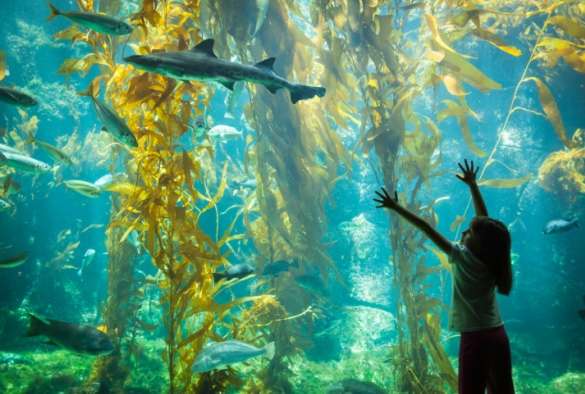Blue Planet Aquarium to trial world's first automated fish health monitor

Scientists from the University of Liverpool will showcase a novel automated fish health monitor to visitors at Blue Planet Aquarium for the first time this weekend.
The monitor is the culmination of three years work in the laboratory of Dr Lynne Sneddon at the University's Institute of Integrative Biology.
A world leader in fish health and welfare, Dr Sneddon's research aims to improve the way fish are looked after and cared for in captivity.
Improving fish welfare
Dr Sneddon said: "The monitor uses non-invasive behavioural and physiological measurements to allow researchers and animal carers to accurately diagnose whether a fish is in pain or distress and to intervene accordingly."
Two cameras, linked to a computer, track the movements of fish in aquariums in three dimensions. Movement for healthy fish are programmed into the system, and if a fish shows deviations from these parameters the computer detects this and gives a health 'score'. The monitor can then alert the carer that there may be an issue, and ensure action is taken promptly.
Wider potential
Blue Planet Aquarium curator David Wolfenden, who invited Dr Sneddon to trial the monitor at the aquarium, said: "Blue Planet Aquarium houses some 4,000 fish species and we are always looking at ways to employ the latest state of the art techniques in animal health.
"This monitor has the potential to revolutionise the care of aquatic life in captive environments worldwide and it will be fascinating to the see the results of its first trial in a public aquarium."
Provided by University of Liverpool

















